Written by Brandon Okey. Mina Draskovic, B.Psy., reviewed this content for accuracy.
Drug addiction is a journey in which you go through clear stages. From a first curious hit to full-blown dependency, each step puts you deeper into trouble.
Drug use can spiral from casual to uncontrollable faster than you think. We’ll show you the warning signs of addiction so you can spot trouble early. If you recognize your drug use following this dangerous path, contact Ardu. Our experienced team offers personalized treatment plans, compassionate support, and evidence-based therapies designed to help you break the cycle of addiction.
Drug addiction is a severe form of substance use disorder (SUD). It’s a complex brain disease that affects behavior and self-control. It’s characterized by compulsive drug seeking and use, despite harmful consequences.
What starts as fun can quickly spiral into dependency because of the way addictive substances hijack your brain. Different drugs have their own unique effects, but all addictions share these common red flags:
Addiction is too complex to tackle alone. If you spot these warning signs in yourself or someone else, seek professional help immediately. Ardu offers comprehensive drug rehabilitation services tailored to your unique needs. Our expert team combines evidence-based treatments with compassionate care to give you the best chance at lasting recovery.
The progression of drug addiction is gradual and different for each person. While there’s no universally accepted model of addiction, most stage theories of drug addiction share these common elements:
Addiction: Drug use takes over your life. You can’t stop, even though it’s hurting you and those around you.
Many people try drugs out of curiosity, peer pressure, or to cope with stress. It might be a joint at a party, a friend’s prescription pill, or a line of cocaine to stay awake. At this stage, drug use seems harmless and fun. The user feels in control, or so they think. But even casual use can be dangerous.
Drug use for recreational purposes can rapidly escalate, leading to more frequent use and increased risk-taking behavior. The brain quickly begins to form associations between the drug and pleasure, setting the stage for addiction.
The stages of alcohol addiction closely mirror those of drug addiction, following a similar progression from experimentation to dependence. Ardu’s comprehensive alcohol rehab programs help you start your journey to lasting sobriety today.
Drug use becomes more frequent and patterned and users turn it into a regular habit. They might consume drugs on weekends, at parties, or to handle stress or social anxiety. They develop a tolerance, needing more of the substance to achieve the desired effect.
At this stage, drug use becomes a more significant part of the user’s life. They start to prioritize activities where drugs are available or seek out opportunities to use. The body adapts to the presence of the drug, and users may experience mild withdrawal symptoms between uses. They begin to rely on the substance to feel normal or to cope with daily life.
It’s not uncommon for users to downplay the negative consequences of their drug use, rationalizing it as harmless or under control.
Here’s where drug use escalates. Users consume larger quantities more frequently. Tolerance continues to build. Many people start to experiment with different drugs or administration methods to enhance the high. Negative consequences begin to mount: job performance suffers, relationships strain, and financial problems emerge.
Despite these issues, users struggle to cut back or quit. They may experience guilt or shame about their use but feel unable to stop. Denial strengthens, and the physical and psychological dependence deepens. Without intervention at this point, the user is on a fast track to full-blown addiction.
Risky drug use doesn’t have to be your new normal. Ardu Recovery Center targets this pivotal stage of addiction with evidence-based programs that address both the intensifying physical dependence and the complex psychological factors fueling risky drug use.
Our drug detox services help you safely break free from escalating substance use. We provide 24/7 medical supervision, personalized medication management to ease withdrawal, and compassionate support as you take this crucial first step.
At this point, the user’s body and mind have adapted to the constant presence of drugs. They need the substance to feel normal and function day-to-day. Without drugs, they experience intense physical and psychological withdrawal symptoms.
Drug use becomes less about getting high and more about avoiding the misery of not using. Life starts to revolve around obtaining and using drugs. Relationships crumble, work suffers, and health declines. The user may recognize they have a problem but feels powerless to stop.
Attempts to quit often fail because the users struggle with severe withdrawal and intense cravings. Ardu offers medically-supervised detox to manage withdrawal and cognitive behavioral therapy safely (CBT) to rewire thought patterns. We can ease your physical discomfort and help you identify and change drug-related behaviors and thought patterns, giving you practical tools to combat dependence.
Stage five is where drug use has completely taken over, becoming the central focus of the user’s life. They’ve lost control, using compulsively despite severe consequences. Health problems mount, relationships are in ruins, and financial disaster often looms.
The brain has been rewired, prioritizing drug use above all else. Attempts to quit trigger intense cravings and withdrawal, making it nearly impossible to stop without help. Users may engage in risky or illegal behavior to obtain drugs.
The harsh reality of addiction becomes impossible to ignore. This stage isn’t just a bad habit; it’s a chronic brain disease that rewires neural pathways, making quitting extraordinarily difficult.
Addiction is a disease of the brain characterized by compulsive drug seeking and use despite harmful consequences. It’s considered a disease because it alters brain structure and function, particularly in areas involved in reward, stress, and self-control. Like other chronic diseases, addiction often involves cycles of relapse and remission, requiring ongoing management rather than a one-time cure.
Relapse is an unavoidable part of recovery for many battling addiction. Our evidence-based relapse prevention treatment aids in identifying triggers, developing coping strategies, and building a supportive community to give you the best shot at staying on track, even when the going gets tough.
Reach out to Ardu and take the first step towards reclaiming control of your life, no matter what stage of addiction you’re facing.
Addiction and recovery are complex processes that unfold in stages. Our expert team guides you through a comprehensive recovery process, adapting our approach as you move from dependence to lasting sobriety.
For those in the later stages of addiction, where physical dependence has set in, detoxification is the first step. Our drug and alcohol detox programs help your body safely adjust to the absence of the substance while managing uncomfortable or dangerous withdrawal symptoms.
Our evidence-based detox center provides round-the-clock care to safely manage withdrawal symptoms. We use FDA-approved medications, such as buprenorphine, naltrexone, and acamprosate, to ease cravings and support recovery. Our medical monitoring provides you a safe transition to a substance-free state.
We also incorporate a holistic approach to detox, integrating nutritional support, mindfulness techniques, and gentle exercise to address the physical, emotional, and spiritual aspects of withdrawal.
After you complete detox, you enter our rehab facility where you choose one of the following treatment modalities.
We offer tailored programs to address different stages of addiction:
As you progress through the stages of recovery, our aftercare and relapse prevention planning keep you on track. We provide ongoing support through sober living arrangements, continued therapy, and lifestyle coaching to solidify your recovery.
At Ardu, we recognize that recovery, like addiction, is a journey through stages.

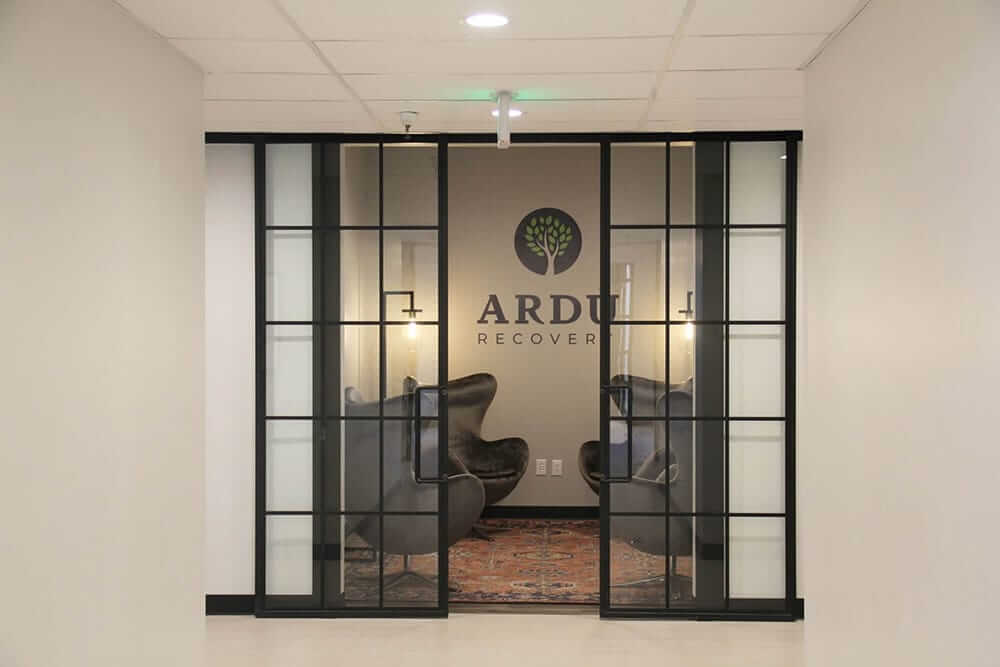
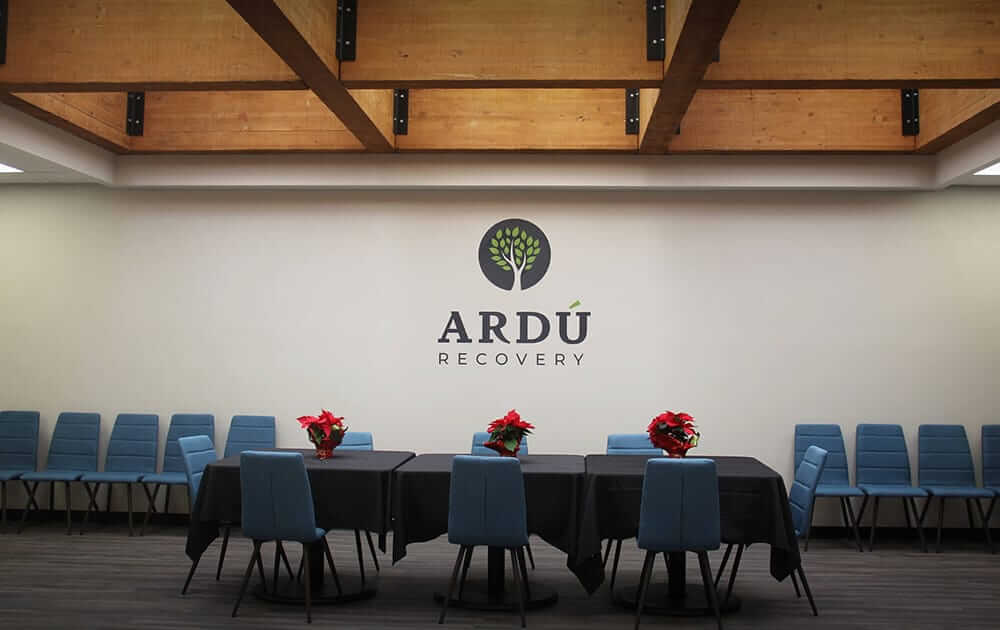
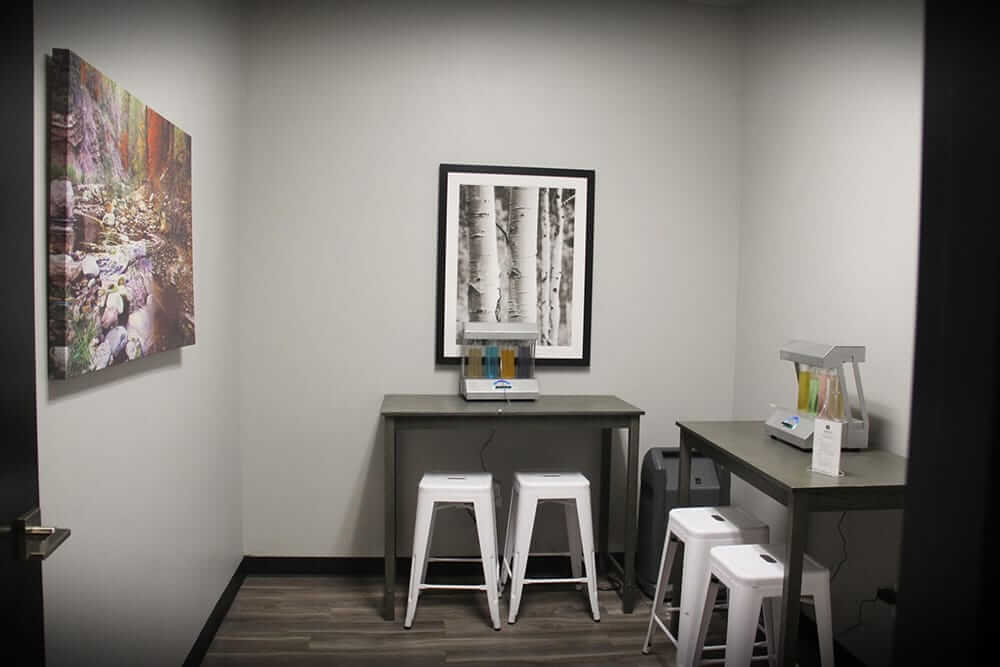


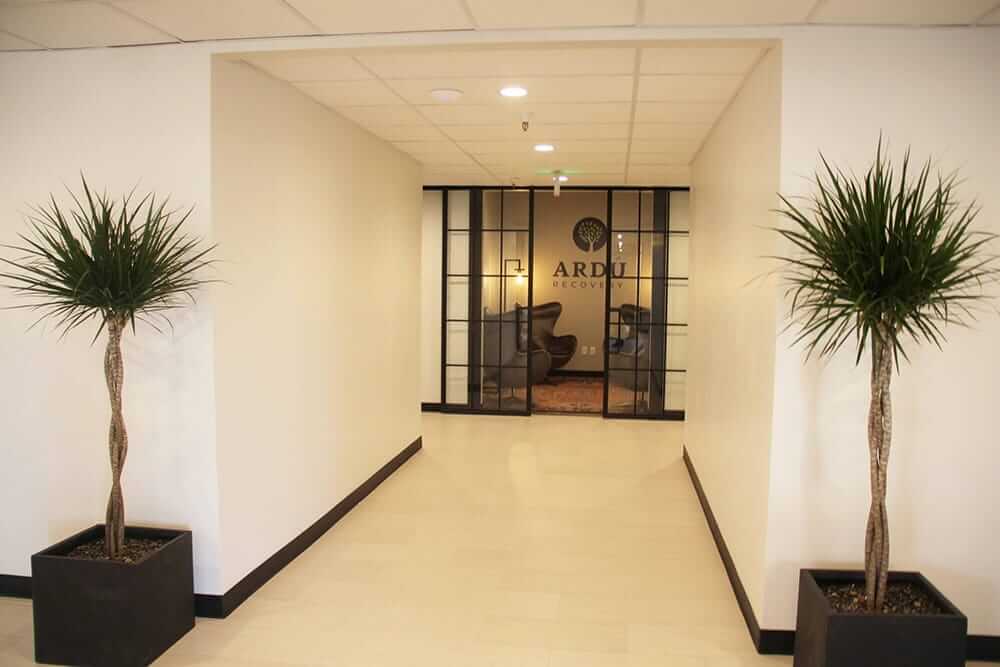
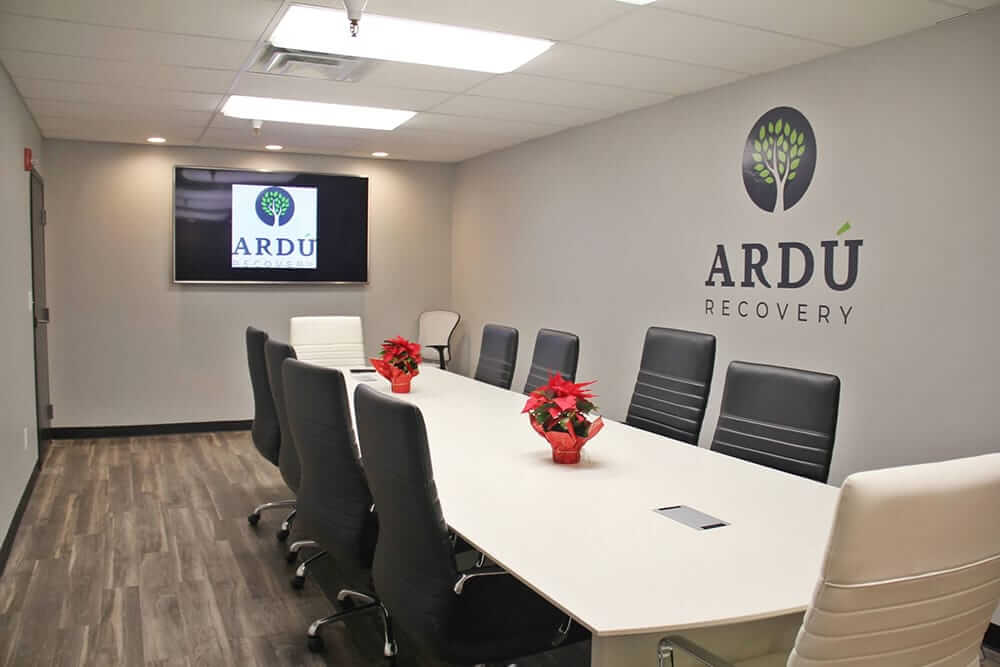
Drug addiction is a progressive condition, but recovery is possible at any stage. At Ardu, we tailor our approach to meet you wherever you are in this process:
Recovery isn’t linear. Our comprehensive approach ensures you have the support you need at every stage, from addressing experimental use to overcoming full-blown addiction. We provide ongoing support to help you maintain your progress and avoid sliding back into the earlier stages of substance use disorder.
Contact us to get informed and start your sobriety journey today.

Brandon Okey is the co-founder of Ardu Recovery Center and is dedicated to empowering people on their journey to sobriety.
Overcoming drug addiction involves breaking the cycle of addiction through a comprehensive approach:
The 5 C’s illustrate key aspects of the addiction cycle:
These characteristics highlight addiction as a complex interplay of physical dependence and psychological factors.
Drugs profoundly impact the human brain. They trigger an excessive release of dopamine, creating intense feelings of pleasure. This overstimulation leads to adaptations in brain circuitry, affecting decision-making, impulse control, and stress response.
Drug abuse can cause long-term changes in brain structure and function, altering neurotransmitter systems beyond dopamine, including serotonin and the excitatory neurotransmitter glutamate. These changes contribute to the development of tolerance, withdrawal symptoms, and compulsive drug-seeking behavior.
Breaking the addiction cycle is possible, though it often requires professional help and ongoing effort. The cycle typically involves intoxication, withdrawal, and preoccupation with obtaining and using addictive substances. Breaking this cycle starts with recognizing the problem and seeking treatment.
Here are some things that can help you break the addiction cycle:
While relapse rates can be high, each attempt at recovery strengthens coping skills and resilience. Many individuals achieve long-term recovery with proper support and persistence. Ardu is here to support you every step of the way.
Addiction treatment typically involves a combination of approaches tailored to individual needs. It often begins with medically supervised detoxification to manage withdrawal symptoms safely. This is followed by a comprehensive treatment program that may include:
Treatment can be delivered in different settings, including inpatient rehab, outpatient programs, and partial hospitalization. The goal is to address the physical, psychological, and social aspects of addiction, promoting long-term recovery and improved quality of life.
Addiction has a significant genetic component, but it’s not solely determined by genes. Genetic factors can account for about 40–60 percent of a person’s vulnerability to addiction. Certain genetic variations increase the risk of developing substance use disorders by affecting how the brain processes rewards or responds to stress.
Environmental factors, such as childhood experiences, stress, and exposure to drugs, also play crucial roles. The complex interplay between genetic predisposition and environmental influences contributes to the development of addiction. While having a family history of addiction increases risk, it doesn’t guarantee that an individual will develop an addiction.
Addiction manifests differently in individuals, but there are three general categories of addicts:
These categories aren’t definitive diagnoses but rather patterns observed in addictive behaviors. Each type may require different approaches in treatment, considering factors such as severity of use, lifestyle impact, and co-occurring mental health disorders.
Initial detox can take days to weeks, while the acute withdrawal phase may last 1–3 months. Post-acute withdrawal symptoms can persist for months or even years. The timeline for overcoming addiction varies among individuals and depends on the substance of choice, duration and severity of addiction, co-occurring mental health conditions, and personal circumstances.
Many experts view addiction as a chronic condition requiring ongoing management, similar to other chronic illnesses. Long-term recovery involves continuous effort, lifestyle changes, and often ongoing support to maintain sobriety and prevent relapse.
What is the best way to stop drinking?
Understanding polysubstance abuse
Is it possible to quit multiple addictions at once?